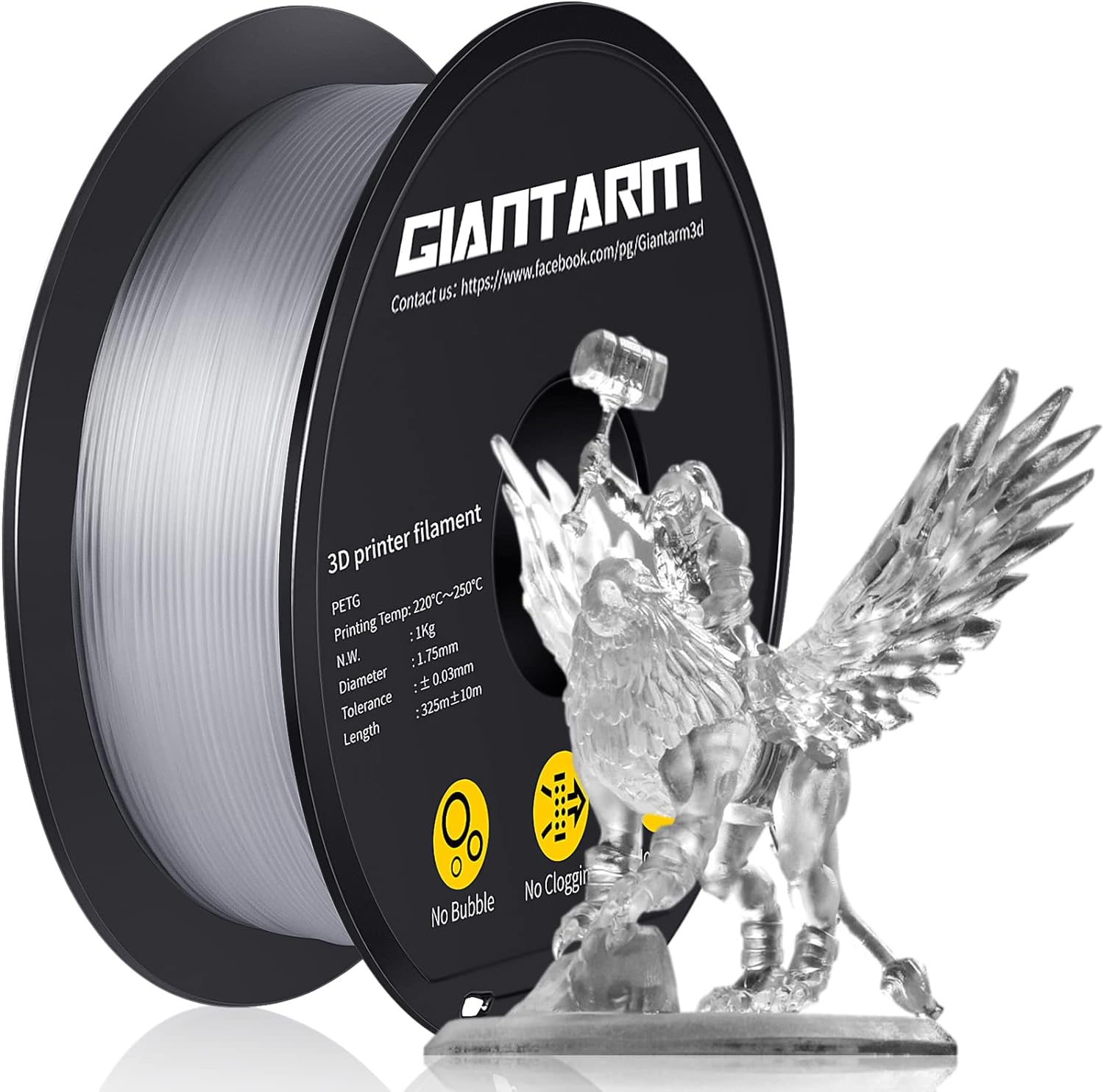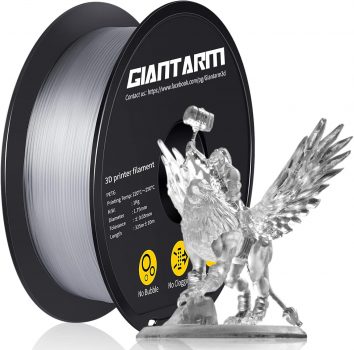
In the realm of 3D printing, finding the right filament is crucial for achieving excellent prints. The GIANTARM PETG Filament 1.75mm stands out with its toughness and dimensional accuracy. In this article, we’ll delve into its features, user experiences, and the reasons why it might be your next go-to filament.
Product Features
| Feature | Specification |
|---|---|
| Diameter | 1.75mm |
| Weight | 1kg (2.2lb) |
| Dimensional Accuracy | +/- 0.02mm |
| Printing Temperature | 220-250℃ |
| Hot Bed Temperature | 80-90℃ |
| Material Type | PETG |
| Environmentally Friendly | Yes, recyclable |
| Packaging | Vacuum sealed with desiccant |
Product Overview
| Pros |
|---|
| Durable and tough prints |
| Clog-free and smooth feeding |
| Compatible with most FDM printers |
| Environmentally friendly material |
| Cons |
|---|
| Requires a specific printing temperature range |
| Occasional need for drying before use |
Understanding the Benefits of PETG Filament
When it comes to achieving exceptional results with GIANTARM PETG filament, there are several best practices to consider. First and foremost, optimal printing temperatures are crucial. I have found that a nozzle temperature between 230°C and 250°C generally yields the best layer adhesion, while a heated bed set to around 70°C helps prevent warping. This combination not only enhances print quality but also reduces the risk of those frustrating layer delamination issues.
Now, about extrusion settings; getting the right flow rate is key. In my experience, calibrating your printer’s extrusion multiplier to about 1.0 to 1.2 will often yield solid prints. Switching to a moderate print speed also helps. I typically operate around 40-60mm/s for better detail without sacrificing the integrity of the model.
Maintaining your printer is another important aspect. I’ve learned that periodically cleaning the hotend and ensuring the filament path is clear can dramatically reduce the chances of clogging. Regular maintenance checks can save time and headaches down the line.
Lastly, if you run into troubles, troubleshooting is essential. Common issues like stringing can often be resolved by tweaking retraction settings or lowering your print temperature slightly. User testimonials frequently highlight the joys of printing with GIANTARM PETG, emphasizing its workability once you dial in those parameters. So, embracing these tips can elevate your 3D printing experience, leading to stunning results you can truly appreciate.
Tips for Optimal Printing with GIANTARM PETG
When working with GIANTARM PETG filament for your 3D printing projects, there are several best practices to consider that can significantly enhance your results. First and foremost, I recommend setting your print bed temperature between 70°C and 80°C for optimal adhesion. This ensures that the filament sticks well during the printing process, reducing the chances of warping. Additionally, a nozzle temperature of around 230°C to 250°C often delivers the best flow and layer adhesion.
Extrusion settings are equally important; calibrating your printer for a consistent filament feed can make a world of difference. I advise doing test prints to fine-tune the flow rate until you achieve a smooth, even extrusion without stringing or blobs.
In terms of maintenance, I’ve found that regularly cleaning the nozzle can prevent clogs, especially with PETG’s tendency to create residue. Using a thin wire or cleaning filament can help keep things running smoothly.
Many users have shared that slowing down the print speed to around 40 to 60 mm/s results in crisper details and reduces the likelihood of issues.
If you encounter any problems, such as layer separation, increasing the bed temperature or ensuring that the filament is dry can help. Adopting these tips will not only enhance your 3D printing experience but also help you unlock the full potential of GIANTARM PETG filament.
Conclusions
The GIANTARM PETG Filament 1.75mm is an excellent choice for 3D printing enthusiasts seeking durability and ease of use. Its environmentally friendly properties, combined with its impressive print quality, make it a reliable option. In conclusion, this filament can elevate your printing projects to new heights.








